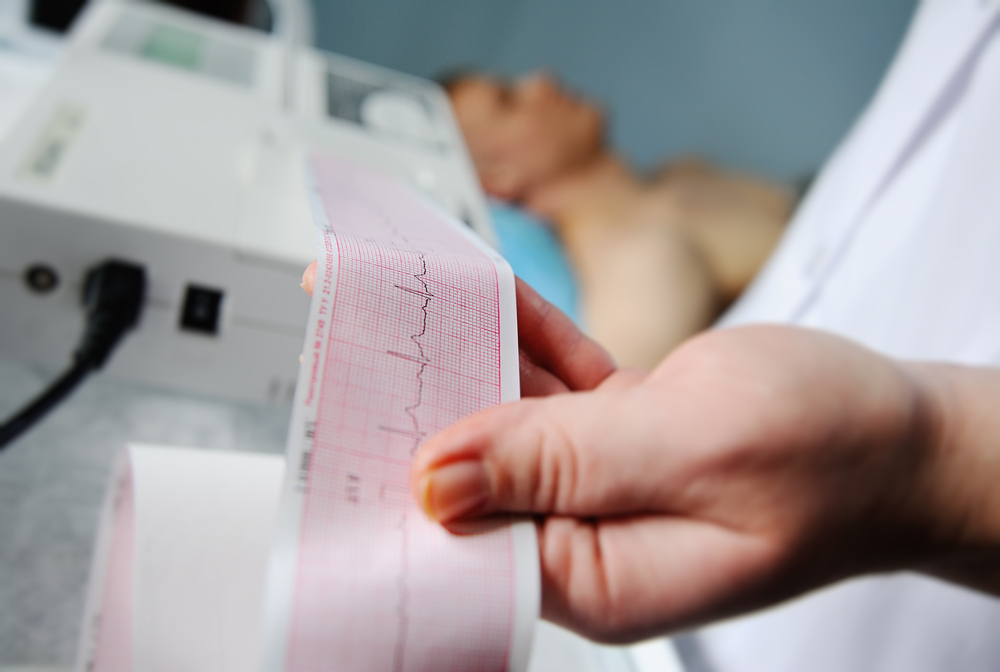Clinicians across disciplines use the electrocardiogram (ECG) as a first-line tool for patients who present with cardiac complaints. Widely available and cost-effective, ECG provides objective measurements that help clinicians spot irregularities warranting further investigation.
Despite its value as the first step toward efficient decision-making, many clinicians lack confidence in their ability to read ECGs. Computerized ECG interpretation (CEI) provides intelligent assistance, but how effectively does this tool work? Can clinicians trust computerized ECG interpretation?
A first-of-its-kind study from Anthony Kashou, MD, aka "The EKG Guy," shows how CEI helps improve ECG accuracy, efficiency, and confidence among non-cardiologists.1 The results will contribute to further refinement of ECG-interpretation algorithms addressing the needs of non-cardiologists. The study also illustrates the current and potential advantages of digital technology for real-time diagnostic support.
Why do clinicians lack confidence in ECG interpretation?
Current and recent medical students enter the profession with less clinical experience than ever before.2 Pandemic-related issues, a shortage of instructors, or a combination of both have caused medical students and residents to receive insufficient hands-on practice and mentorship. A few hours of ECG training may help non-cardiologists recognize clear deviations that indicate acute myocardial infarction, but it may not provide them with the ability to identify other diagnostically important irregularities. This lack of in-depth experience impacts confidence, which leads to decreased efficiency and potentially missed diagnoses.
CEI aims to improve ECG interpretation by automatically analyzing and interpreting ECGs and filling gaps in human knowledge. In other words, it provides a confidence boost. However, some experts have questioned how much clinicians should rely on CEI.
As Dr. Kashou mentions in his abstract, past studies have highlighted limitations in diagnostic performance. The results of his research, however, present a different view.
CEI is associated with improvements in accuracy, confidence, and speed
Approximately 900 clinicians participated in the study, including primary care physicians, residents, medical students, nurses, advanced practice providers, and allied health professionals. Participants interpreted 60 standard 12-lead ECGs. First, they interpreted 30 ECGs with clinical statements. Next, they used both clinical statements and CEI to analyze the same 30 ECGs.
The study results showed the following:
- CEI interpretation was associated with a 15% improvement in accuracy, an averaged 52 sec decrease in interpretation time per ECG, and a significant overall improvement in confidence.
- Most of these professionals (71.8%) had received five hours or less of ECG training.
- Most (68.1%) received either no or rare direct ECG supervision.
- Most (75.4%) found CEI either helpful or somewhat helpful.
Dr. Kashou's study underscores the value of CEI among non-cardiologists. It also emphasizes the need for more in-depth ECG training for a broader range of clinicians. Because increasing workloads may make it more difficult today for a cardiologist to provide direct supervision, healthcare organizations can consider augmenting direct oversight with virtual tools. Those virtual tools can not only help train clinicians on ECG basics but also on CEI.
By learning to use both methods, clinicians will better understand technology's strengths and limitations. A comprehensive understanding of ECG helps clinicians derive conclusions based on past and current readings, while CEI brings standardization and efficiency. With knowledge of both elements, clinicians would be able to identify discrepancies more effectively and reconcile them without the need for a second opinion. Further, clinicians would learn how and when to trust those interpretations, which builds confidence.
How CEI helps address knowledge gaps
Dr. Kashou's study shows clinicians are inadequately trained but want to learn. Despite a shortage of staff and an abundance of work, clinicians remain dedicated to continuous learning. If we can move even one step closer to providing that training, CEI offers tremendous potential to improve patient care in a wide range of settings.
As a first-line tool, CEI offers several benefits, including:
- Immediate feedback on ECG readings. Rapid response enables clinicians to identify and correct their mistakes in real time, enhancing their learning curve while expediting patient care.
- Consistency. Because CEI is based on algorithms, it operates the same way every time. This pattern-recognition power provides support when clinicians are faced with atypical ECG readings while potentially reducing the risk of error due to fatigue.
- Big data. Today's CEI tools have access to vast ECG databases. These datasets allow the tools to provide informed interpretations to augment clinical experience.
- Continuous learning. The algorithms that power CEI tools improve as they process more data. This continual refinement makes the tools more valuable over time, especially for identifying complex patterns.
As more clinicians rely on CEI, it's important to stress that this technology is intended to complement human expertise. It's not a replacement for critical thinking. When used appropriately, CEI can enhance our ability to care for patients who present with heart-related complaints. Because it's readily available and cost-effective, ECG enables clinicians to quickly diagnose a problem, helping to lower the risk of unnecessary tests and procedures.
As algorithms become more sophisticated, our reliance on them will only increase. Therefore, it's imperative for the healthcare community to help clinicians expand their ECG knowledge and the role CEI plays in quality patient care.
Resources:
1. Kashou AH, Noseworthy PA, Beckman TJ, et al. Impact of computer-interpreted ECGs on the accuracy of healthcare professionals. Current Problems in Cardiology. 2023;48(11):101989. https://doi.org/10.1016/j.cpcardiol.2023.101989.
2. Chen SY, Lo HY, Hung SK. What is the impact of the COVID-19 pandemic on residency training: a systematic review and analysis. BMC Med Educ. 2021;21(1):618. https://doi.org/10.1186/s12909-021-03041-8.
Dr. Chandra in her role as Medical Director in Diagnostic Cardiology in GE HealthCare is responsible for guiding innovations in medical technology, intelligent devices, and care solutions at GE HealthCare. Dr. Chandra's areas of expertise and interest include cardiometabolic health, inflammation, cardiovascular imaging, valvular management pathways, aortopathies, and the role of digital health in cardiovascular disease diagnosis and management.



